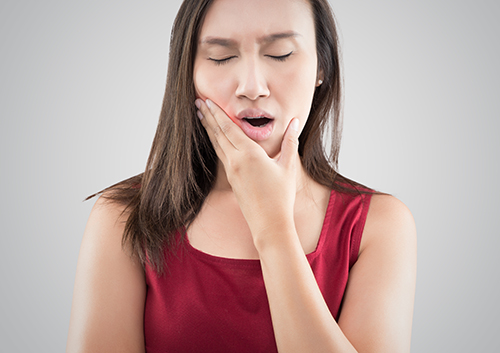Osteoporosis and Dental Health
November 30th, 2022

What do we know about osteoporosis? We may know that this disease makes the bones more brittle and vulnerable. We may know that osteoporosis is the cause of many a broken hip or curved spine as we age. We may even know that, for a number of reasons, women are far more likely to develop this disease. What we may not be aware of is the impact osteoporosis can have on our dental health.
“Osteoporosis” means “porous bones.” It is a disease that makes the bones more likely to fracture or break, as the body’s careful balance of absorbing old bone tissue and replacing it with new healthy bone tissue is disrupted. We lose bone tissue faster than we can create new, dense bone tissue. Why is this important for our dental health? Because the fitness of our teeth depends on the fitness of the bones surrounding and securing them in our jaws.
How does osteoporosis affect dental health?
- Osteoporosis reduces density in the bones and bone tissue that hold our teeth in place. Studies have shown that women with osteoporosis have significantly more tooth loss than women without the disease.
- Periodontitis, or gum disease, can also cause deterioration in the bone surrounding the teeth. This is a time to be proactive with gum health to avoid infections and further bone loss.
- Denture wearers may find that their dentures no longer fit properly due to changes in bone structure. Bone loss needs to be addressed promptly to avoid having to replace dentures.
- Rarely, bone-strengthening medications for osteoporosis can lead to serious jaw problems after dental procedures that involve the jawbone (such as extractions). Always tell us any medications you are taking before we schedule any dental treatment.
Unfortunately, osteoporosis often has no symptoms at all—until the first bone fracture. Checking our bone density is important as we age, and one way of discovering changes in bone density is through your regular dental checkups at our East Lyme, CT office. We can pinpoint changes in your X-rays through the years and will recommend that you see your physician if there is any indication of bone loss. If you have already been diagnosed with the disease, we have ideas to help maintain the health of your teeth and bones.
Many factors can increase your chance of developing osteoporosis. Age, illness, personal habits, medications, diet, genetics—any number of conditions can affect our bone health. Talk to us about osteoporosis. Dr. James Robson would like to work with you to provide prevention and treatment to keep your teeth and bones strong and healthy for a lifetime of beautiful smiles. And that’s certainly good to know!



